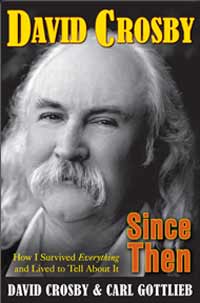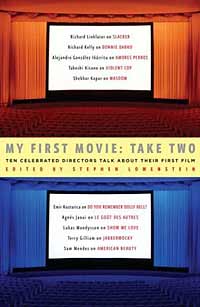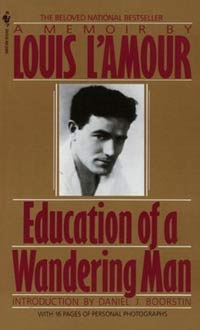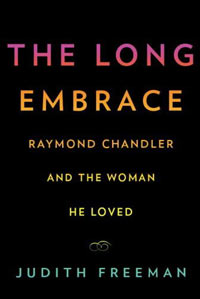Five Creative Lives
This month in Hot Off the Press, we’ve got a pile of personal stories by and about a set of names you could safely call legendary. Each one rose to the top of their field, be it crime fiction, rock music, filmmaking, television news, or western novels. As any enthusiast of biographies knows, lives of extraordinary accomplishment tend to come with extraordinary challenge as well-dizzying highs are accompanied by terrifying lows and still-entertaining middles. They’re all what make a life story worth writing, and, more to the point, one worth reading.
Since Then
by David Crosby

The lows make up a decent portion of veteran singer/songwriter and Santa Barbara resident David Crosby’s second memoir, Since Then. The book’s subtitle, How I Survived Everything and Lived to Tell About It, paints an accurate picture of the subject matter: Pivotal events include a bone-crunching motorcycle wipeout, a liver transplant preceded by a nerve-racking stretch on the waiting list, and a house-destroying earthquake. But it’s not all surgery and property damage; Crosby also covers some of his recent high points, mostly to do with sons: reconnecting with his grown one, producing another, and becoming the father-by-donation to the son of friend and fellow rocker Melissa Etheridge.
My First Movie: Take Two
by Stephen Lowenstein

Another of this season’s sequels gets inside an entirely different sort of creative mind. Stephen Lowenstein’s My First Movie: Take Two asks 10 directors to talk about their very first feature-length project: how they were inspired to take it on and what they had to learn (and what they had to improvise) along the way. Though the book is the second in the series, it by no means scrapes the bottom of the barrel where interviewees are concerned: Indie superstar Richard Linklater discusses his cult favorite Slacker, world-renowned Japanese director/actor/television host/painter/writer Takeshi Kitano looks back on his Violent Cop, and famously quixotic former Monty Python animator Terry Gilliam discusses Jabberwocky, the goofy medieval comedy that formed his early reputation.
Education of a Wandering Man
by Louis L’Amour

Louis L’Amour wrote 100 books of fiction in his 80 years, and many of the narratives within them incorporated elements of his own life as a cattle-skinner, hay-baler, and itinerant worker in the western United States. Only once did he explicitly turn his storyteller’s eye back on himself. In L’Amour’s final book, Education of a Wandering Man, released in a special edition on the centennial of his birth, the rough-and-tumble experiences that contributed to his novels’ subject matter are placed right next to his slightly more prosaic struggles to publish poems and stories in his early writing years. It seems all writers, even the ones who spent their youths roaming untamed lands, have to deal with the Muse’s caprice from time to time.
Audition
by Barbara Walters

In what’s sure to be a fan-pleasing move, Barbara Walters-quite possibly history’s best-known newswoman-has penned Audition, a hefty memoir packed with all the high-caliber celebrity encounters you’d expect from someone who’s interviewed just about every major figure of the mid to late 20th century, and most of them from the 21st century, to boot. Walters’s enthusiasm about the world’s luminaries comes through in nearly every aspect of the book. Even the inside front and back covers are crowded with familiar names: a Kofi Annan here, a Dennis Rodman there, a Kato Kaelin somewhere. Between the covers, Walters recounts her most important interviews with the breathlessness and vigor for which she has become famous in her own right.
The Long Embrace
by Judith Freeman

Though he created the one and only private detective Philip Marlowe, Raymond Chandler had another important figure in his life who was surrounded by a few mysteries: his wife Cissy-twice-divorced, 18 years his senior, and half the subject of Judith Freeman’s The Long Embrace. This is a study of the man Chandler was before publishing his first novel at the age of 51. Without a whole lot of information to start with, Freeman makes a hearty go of it, attempting to piece together Chandler’s life and marriage. It’s an admirable endeavor: a rich take on a rarely examined side of one of the masters of detective fiction.



